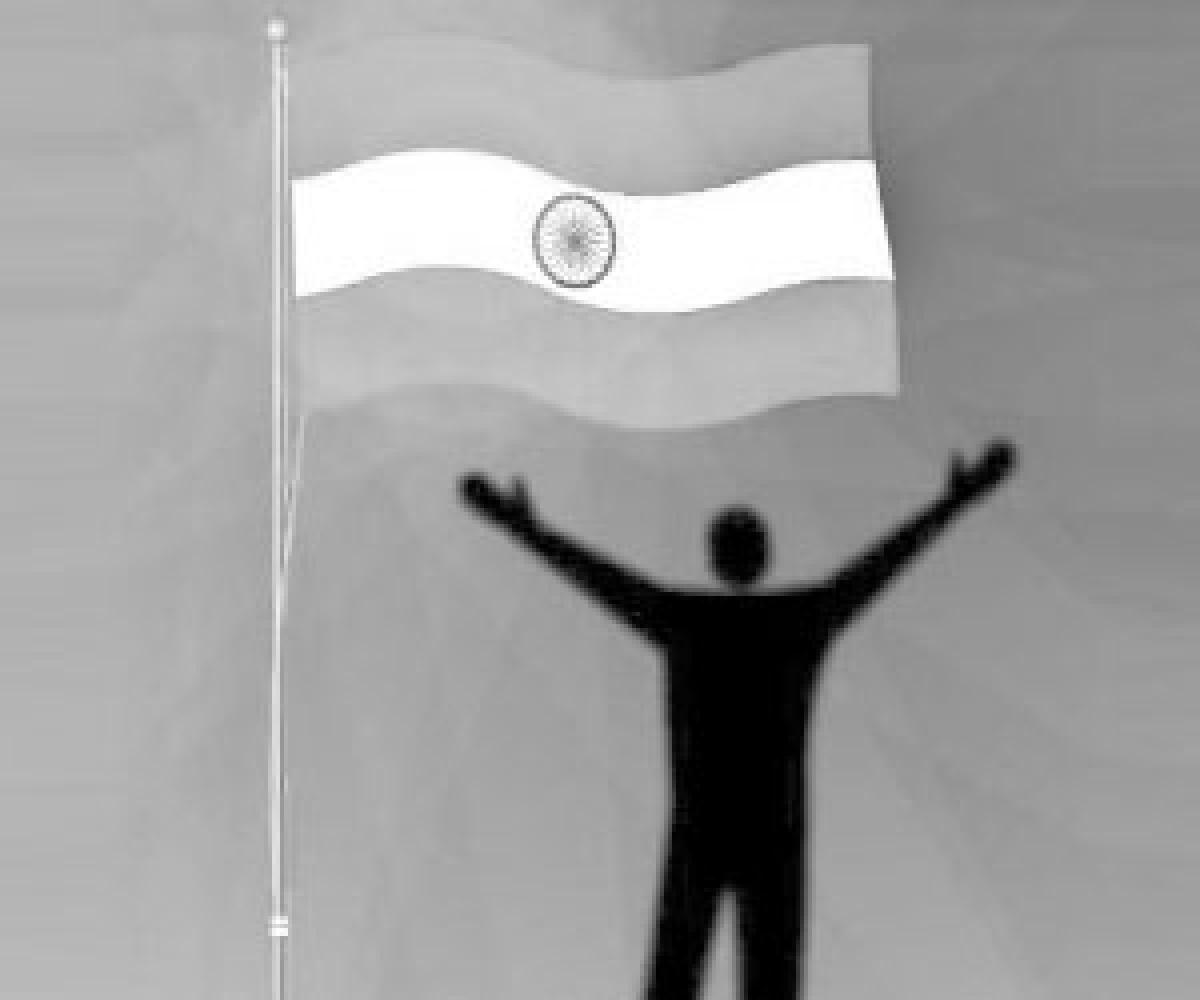Live
- GMR Airports Unveils AI-Powered Digital Twin Platform to Transform Airport Operations
- India poised to become leading maritime player: PM Modi
- Top Causes of Kidney Stones and How to Recognize Silent Symptoms
- India’s renewable energy capacity logs 14.2 pc growth at 213.7 GW
- Winter Session of Odisha Assembly adjourned sine die
- Biden calls Trump's tariff approach 'major mistake'
- After Drama Over Eknath Shinde’s Chief Minister Race, Maharashtra Cabinet Formation Faces New Tensions
- Egyptian FM, Blinken discuss recent developments in Syria
- Iran's supreme leader says Syria's developments result of US-Israeli 'plot'
- Elon Musk to Purchase $100 Million Luxury Mansion Next to Donald Trump's Mar-a-Lago, Report Reveals
Just In

Clearly, this is an instance of judicial overreach, especially against the backdrop that the “Constitution practises tolerance” while the Supreme Court
Clearly, this is an instance of judicial overreach, especially against the backdrop that the “Constitution practises tolerance” while the Supreme Court is the custodian of our Fundamental Rights and Constitutional freedoms. There are so many Fundamental Duties. Will they give directions to enforce them?
What’s in a song? Everything if it is the national anthem. This was strummed by the Supreme Court last Wednesday to instill “committed patriotism and nationalism”. It’s another matter that the beautiful and melodious Jana Gana Mana is being turned besura by our judicial drumbeaters.
The apex court ordered the “national anthem to be played before the start of a film in all cinema halls with all present obliged to stand up to show respect as part of their secret obligation to abide by the ideals engrafted in the Constitution” on a PIL filed by a retired engineer from Bhopal. Sic.
Underscoring that “Bharat is the epitome of gyaan and vigyaan…people must feel this is my country…You are an Indian first.” It further prohibited the anthem’s “commercial exploitation” for incurring commercial benefits or using an abridged version. However, it did not impose penalty or punishment for not standing when the 52 second long Jana Gana Mana is played.
Yet, what is sauce for the goose is not sauce for the gander as the court turned down the plea to play the anthem in courts as it would be ‘an overreach’.
Should the Court entertain such issues? Is it the learned judges’ function to go into whether a person is patriotic or not? How can they decide whether an aam aadmi loves his country?
Does one wear patriotism on one’s sleeve? Can one force people to be patriotic? What of people who might not want to stand up for intellectual or religious reasons as they believe that their religious beliefs prevent them from doing so?
Undoubtedly, the Court’s intent might be good but the manner in which it has gone about it is not.
Questionably, how and who will implement this order “in letter and spirit”? Who will oversee how many people are standing or sitting while the anthem is playing? And who will do a head count? What about the physically disabled, infirm and aged? And if somebody urgently needs to go to the washroom will a cinema hall owner be responsible?
Moreover, by asking the cinema owners to close the exit doors while the anthem is being played does not smack of reason. What if a fire breaks out? Remember the Uphaar tragedy where over 59 people lost their lives because the exit doors were closed by the management.
Clearly, this is an instance of judicial overreach, especially against the backdrop that the “Constitution practises tolerance” while the Supreme Court is the custodian of our Fundamental Rights and Constitutional freedoms. There are so many Fundamental Duties. Will they give directions to enforce them? Also, it is not judicially enforceable
Pertinently, the Apex Court seems to have forgotten its own order in the Bijoe Emmanuel & Others vs State of Kerala & Others in 1986, wherein it ordered a Kerala school to take back three children it had expelled for not singing the national anthem as it was a violation of the Fundamental Right to Freedom of Conscience and freely to profess, practise and propagate religion.
Adding, there was no legal provision that obliges anyone to sing the anthem. The children didn’t sing the anthem because of their conviction that their religion did not permit them to join any rituals except in their prayers to Jehovah.
In fact, the practice to play to play the national anthem in cinema halls was first introduced after the 1962 India-China war. Those were the times when national fervour was high and it was played at the end of the movie, no matter the aam janata simply walked out when the film’s ‘The End’ flashed on the screens.
Perhaps this is the reason why the practice of playing it slowly faded and was eventually discontinued. True, one song cannot make or mar the future of a nation or its people. After all as Samuel Johnson said: “Patriotism is the last refuge of a scoundrel.”
Poonam I Kaushish

© 2024 Hyderabad Media House Limited/The Hans India. All rights reserved. Powered by hocalwire.com







